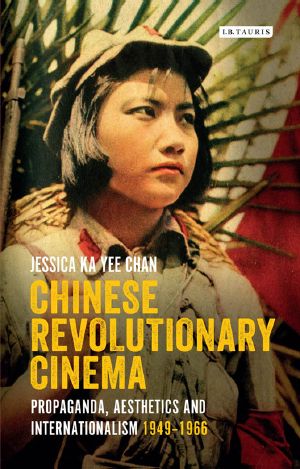Chinese Revolutionary Cinema

- Authors
- Chan, Jessica Ka Yee
- Publisher
- I.B. Tauris
- Tags
- people’s republic of china , state propaganda , state cinema , modernity , twentieth-century socialism , internationalism , social film theory and criticism , chinese revolutionary cinema , socialist culture
- ISBN
- 9781788311908
- Date
- 2019-03-07T00:00:00+00:00
- Size
- 3.39 MB
- Lang
- en
Engaging with fiction films devoted to heroic tales from the decade and a half between 1949 and 1966, this book reconceives state propaganda as aesthetic experiments that not only radically transformed acting, cinematography and screenwriting in socialist China, but also articulated a new socialist film theory and criticism. Rooted in the interwar avant-garde and commercial cinema, Chinese revolutionary cinema, as a state cinema for the newly established People's Republic, adapted Chinese literature for the screen, incorporated Hollywood narration, appropriated Soviet montage theory and orchestrated a new, glamorous, socialist star culture. In the wake of decolonisation, Chinese film journals were quick to project and disseminate the country's redefined self-image to Asia, Africa and Latin America as they helped to create an alternative vision of modernity and internationalism. Revealing the historical contingency of the term 'propaganda', Chan uncovers the visual, aural, kinaesthetic, sexual and ideological dynamics that gave rise to a new aesthetic of revolutionary heroism in world cinema.
Based on extensive archival research, this book's focus on the distinctive rhetoric of post-war socialist China will be of value to East Asian Cinema scholars, Chinese Studies academics and those interested in the history of twentieth-century socialist culture.